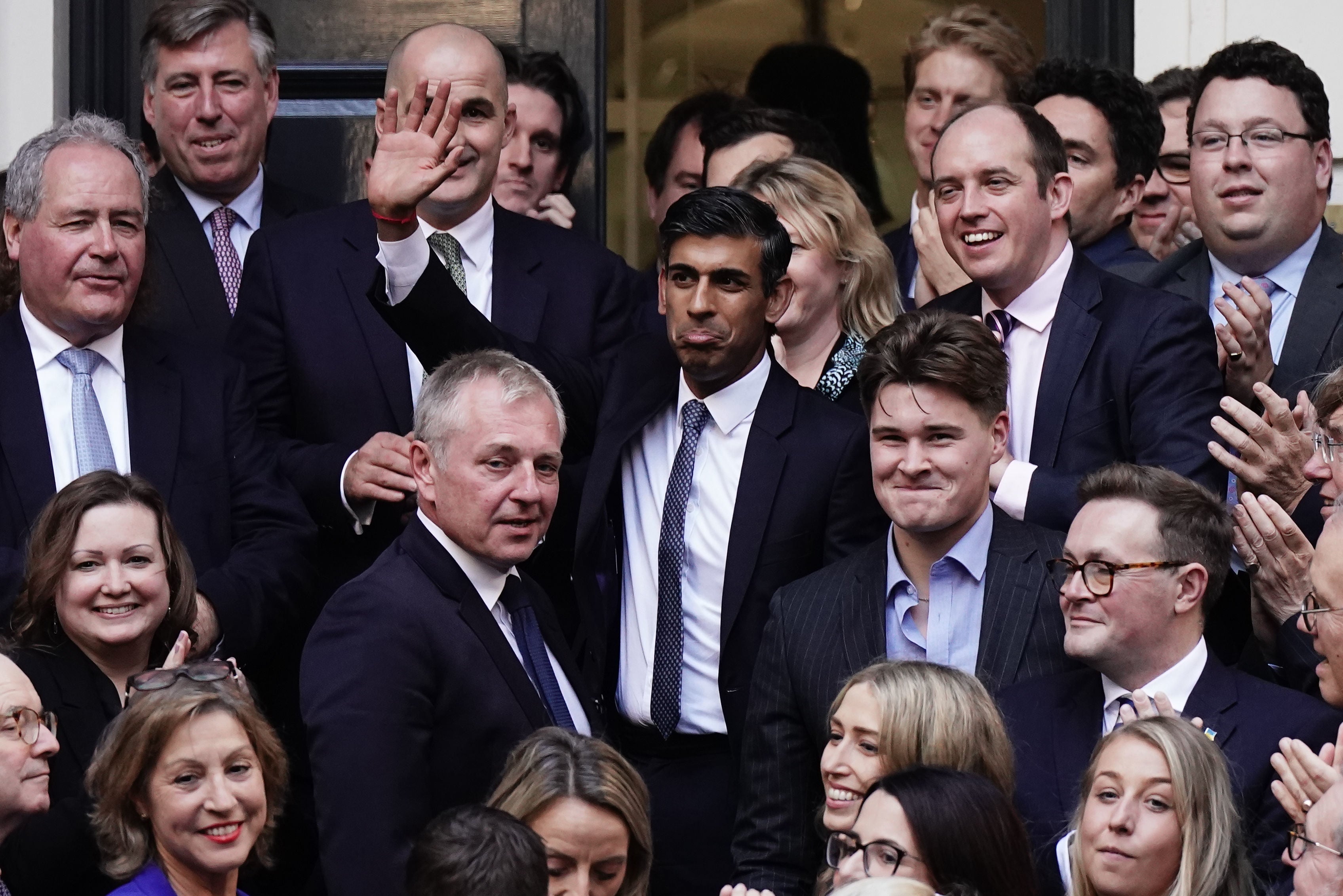Theresa May is right about the next general election
This may sound like heresy, but John Rentoul is prepared to back her prediction over Sir John Curtice’s


I am not sure Theresa May is the best person to look to as a predictor of election results, but I am still prepared to back her against Professor Sir John Curtice. This may sound like heresy, as Curtice is the great guru of election studies. But when he says, “no government that has presided over a fiscal or financial crisis has eventually survived,” I am reminded of an xkcd cartoon by the equally mighty Randall Munroe.
It starts in the US in 1788, with a stick person declaring: “No one has ever been elected president before.” It is headed, “The problem with statements like…” and gives examples of statements similar to Curtice’s “fiscal crisis” one, which were disproved at the next presidential election. “As goes Mississippi so goes the nation.” Until 1848. “No one can become president without getting married.” Until Buchanan. “No president’s been re-elected with double-digit unemployment.” Until FDR.
This last may be relevant to the case of the next British election. (More relevant, certainly, than “No Democrat incumbent without combat experience has beaten someone whose first name is worth more in Scrabble”, which was true until Bill Clinton beat Bob Dole.) It reminds us that economics does not always decide politics – at least, not in predictable ways.
So at the risk of appearing to disagree with Professor Sir John, I would say that his iron law of fiscal crises may not be as rigid as he suggested. Interviewed by the BBC yesterday, he cited 1948, 1967, 1976 and 1992 as examples of crises followed by election defeats. “Not a happy litany of precedents,” he said.
True, but not a conclusive one either. After the crisis of 1948, which led to the devaluation of the pound in 1949, Labour held on in 1950 with a majority of five; it was only Clement Attlee’s vanity (there is a phrase that you do not often read) that made him go to the country again the following year and lose. Perhaps that was why Curtice said “eventually”.
After the devaluation crisis of 1967, Harold Wilson was expected to win in 1970, and probably would have won if it hadn’t been for a late blizzard of bad economic news. And even after the IMF crisis of 1976, it is generally believed, including by me, that James Callaghan could have held on if he had gone for an election in the autumn of 1978.
Only in the 1992 case was the government completely crocked by a crisis, namely the collapse of John Major’s European exchange rate policy. Even then, there were other things going on, such as the division of the Conservative Party over Europe and the election of Tony Blair as leader of the opposition.
What is more, Curtice’s list of precedents excludes the financial crash of 2008, which was followed by the inconclusive election of 2010. I continue to argue in support of Andrew Adonis’s thesis that, had Gordon Brown resigned straight away, a government led by David Miliband and Nick Clegg would have been possible. In any case, there was no inevitability about a Tory-led government: if the votes had tilted slightly further in Labour’s favour, a Labour coalition would have been more appealing to the Liberal Democrats than a Tory one.
So the link between fiscal, financial or economic crises and the demise of governments is not fixed. Governments can win after exchange rate humiliations, as in 1950, or they can lose when the economy is booming, as in 1997. While it is true that the Conservatives have not shown themselves in the most impressive of lights this year, I am not yet convinced that the disaster of the Truss-Kwarteng interregnum has had such a negative effect on the party’s reputation as Major’s 1992 humiliation.
“Voters don’t forget governments being forced to make U-turns by financial markets,” said Curtice. “So it’s going to be very, very difficult.” True again, but it is not the same as 30 years ago. First, because the author of the humiliation has been ditched – or, rather, has ditched herself – but second, she has been replaced by the person who warned in the first place that borrowing to pay for tax cuts was a bad idea. In 1992, Major stayed on as prime minister, mainly because – I think – after 1994, Anne Heseltine didn’t want her husband to risk another heart attack by taking the top job. (In the third decade since, Lord Heseltine at the age of 89 is still as sharp as a knife.)
Which is why Rishi Sunak has a chance. Theresa May, also interviewed by the BBC, said: “There’s no doubt that the mini-Budget had an impact on the Conservative Party’s reputation for sound money and sound public finances.” But, she went on to say: “From everything we’ve seen from Rishi so far, he’s going to be able to turn that round by the next election. I see that we can – in those two years – show people that a Conservative government can be on their side and that he can turn it round and we can win that election.”
A year ago, I said that Keir Starmer was most unlikely to win a majority at the next election, because it would need a swing greater than that achieved by any party since 1945 – greater even than Tony Blair’s swing in 1997. Because of what has happened during 2022, a majority Labour government is now what the betting markets expect.
But in a year’s time, things might look completely different again. As Randall Munroe said, no left-handed president had ever been re-elected – until Reagan was.






Join our commenting forum
Join thought-provoking conversations, follow other Independent readers and see their replies
Comments